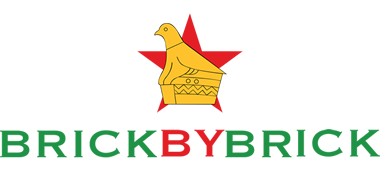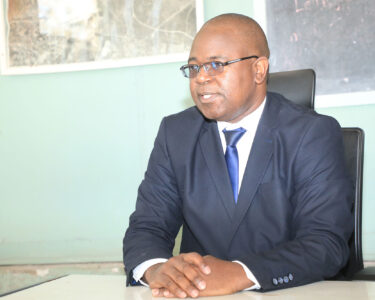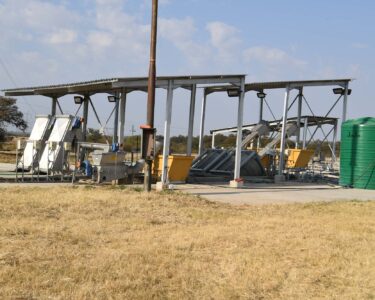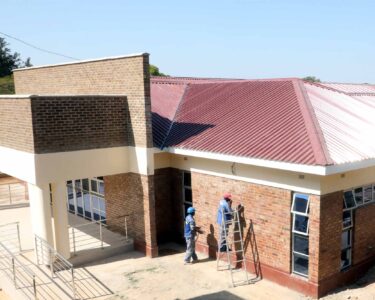The Zimbabwe Parks and Wildlife Management Authority (ZimParks) has completed the first phase of renovations to about 8 executive rooms at the Rhodes Hotel in Nyanga. However, when our Editor-in-Chief Munyaradzi Huni recently visited the hotel, 2 questions haunted him: “Why do we still have a Rhodes Hotel 43 years after independence? Are we not celebrating a blood-sucking arch-imperialist who plundered and looted our country?” These questions almost overshadowed the fantastic work being undertaken by ZimParks in renovating the hotel. Read on . . .
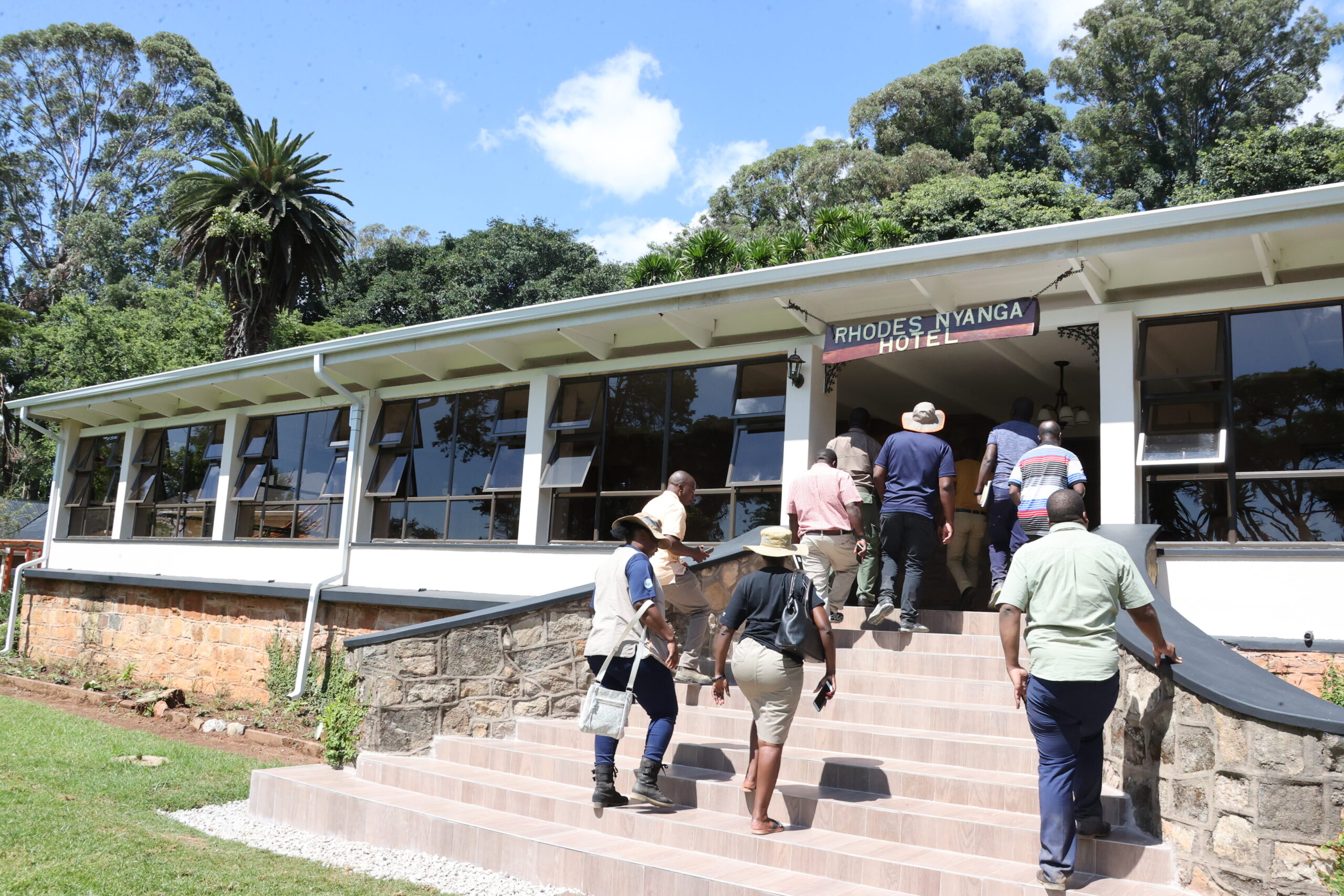
Those who have worked closely with the managing editor of the Brick by Brick magazine, Baffour Ankomah, will tell you that this Ghanaian is very passionate about writing history from an African perspective. Sometimes his passion becomes an obsession; and so as the Brick by Brick magazine team arrived at Rhodes Hotel for a glimpse of the newly-renovated rooms, I felt like rocking the boat a little.
Casually, I asked the hotel’s acting general manager, Nyasha Magusha, why the hotel was still called Rhodes Hotel. The following was his response:
“We have not changed the name of the hotel because most of our clients associate themselves with Rhodes. They are fascinated by the Rhodes Room, which is our signature room. When Rhodes came to Nyanga he slept in that room and so many of his admirers come to sleep in the same room.
“We also have the Rhodes Museum; and so this place is associated with Rhodes and we feel we should not change its name because some tourists will stop coming here. The majority of our white clients appeal to us to maintain the Rhodes feel here. Many tell us ‘We feel ok when we are here. This hotel is of therapeutic value.’ It’s like this hotel makes them reconnect with Rhodes.
“Most of our white clients come all the way from Europe. A handful, though, are still living in Zimbabwe. The bottom line is that many white people love this place. And when they come here, they do so to celebrate Cecil John Rhodes.”
What therapeutic value? Celebrate Rhodes, for what?
I could see that my brother Baffour could not believe what he was hearing. He was almost choking with emotion.
I asked a follow-up question just to stoke the fires. “Rhodes plundered and looted this country, causing untold suffering of the black people. Why are we letting these white people celebrate this plunderer?”
An official from the Zimbabwe Tourism Authority in Manicaland, Tsitsi Madzingo, jumped to the acting general manager’s rescue.
She said: “When these white people come here, they won’t be celebrating Rhodes as such. They are just trying to reconnect with history. We allow it because we use this hotel as a reference point of what we have achieved. We use this hotel to show that we overcame colonialism. When we take our visitors around this hotel, we tell them of the coming of Rhodes and how we went on to defeat colonialism.”
Baffour had heard enough. I could see from his eyes that he was about to give us a very long history lecture.
“My sister,” he said while adjusting his seat, “this country was also once known as Rhodesia, but in 1980 some people saw it was an inappropriate name and they changed its name to Zimbabwe. They changed the name because its colonial name glorified Rhodes.”
And then came the lecture!
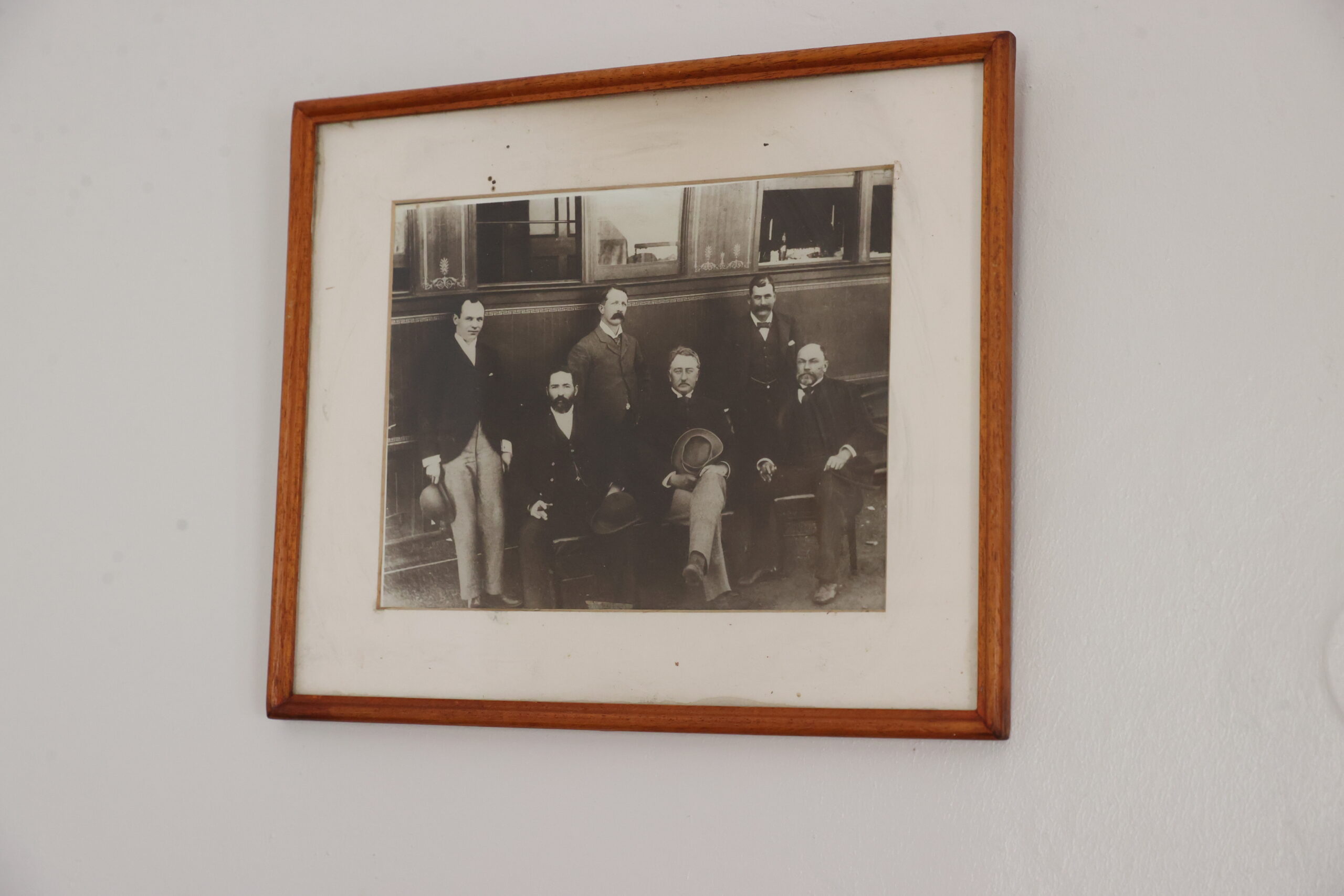
frame showing Rhodes and his
fellow colonialists adorns the foyer of
Rhodes Inyanga Hotel
“Most Africans don’t know that when it comes to colonialism, Africans were the first to colonise Europe. About 711 years after Jesus died our people crossed the Mediterranean from Morocco and occupied Portugal and Spain which at that time were 1 country. They occupied the whole of Southern Europe and ruled it for 781 years. Our people lost Spain on 2 January 1492. When the Europeans got their land back, they erased everything that the African did there apart from the 3 main castles they could not destroy. Everything that the Africans did, they destroyed completely.
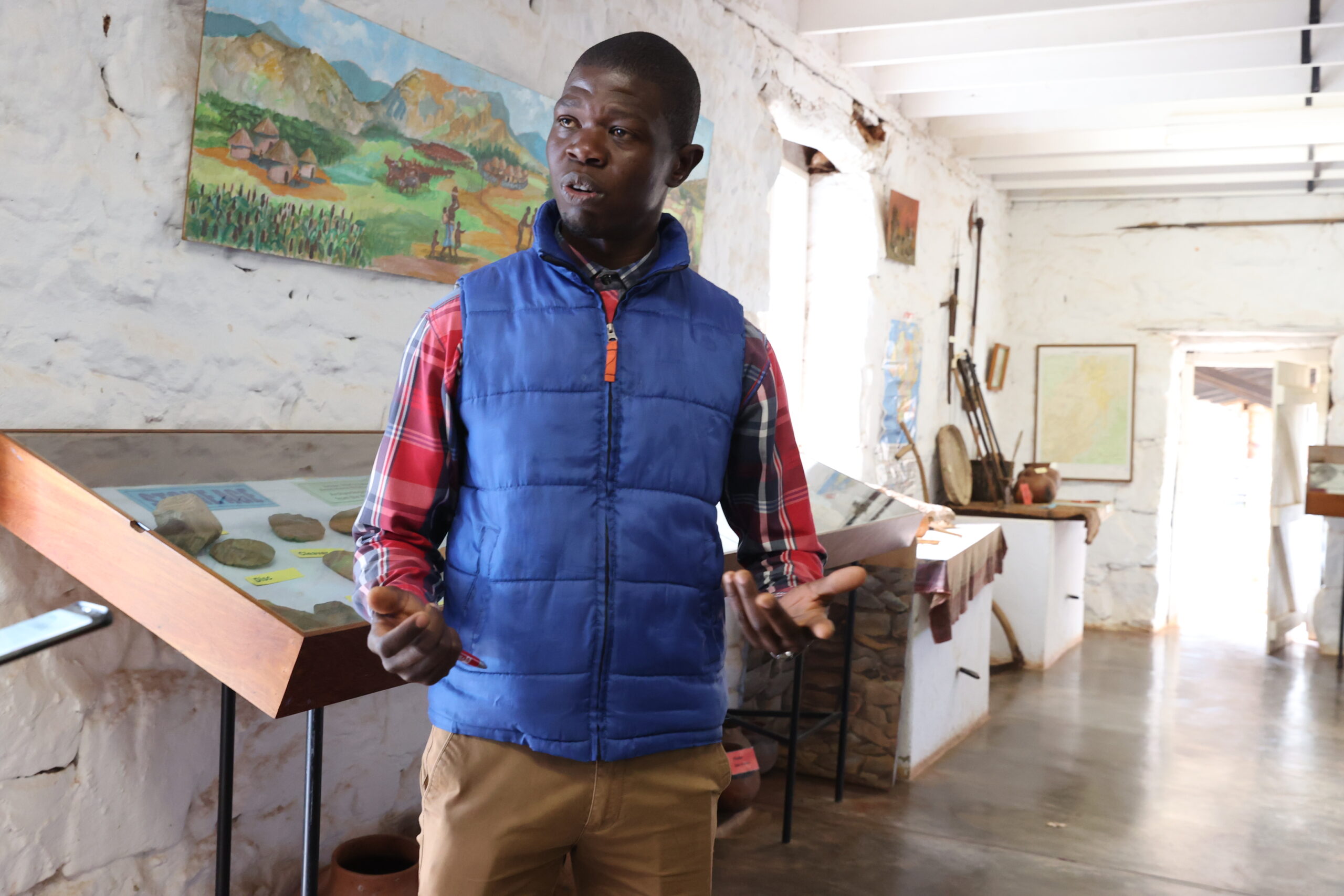
the Rhodes Museum
“I know you are hearing this for the first time that the Africans were the first to colonise Europe. These guys came here for only 100 years and we are holding on to their legacy. Why? You say if we change the name tourists won’t come? Oohh, my God! What kind of thinking is that?”
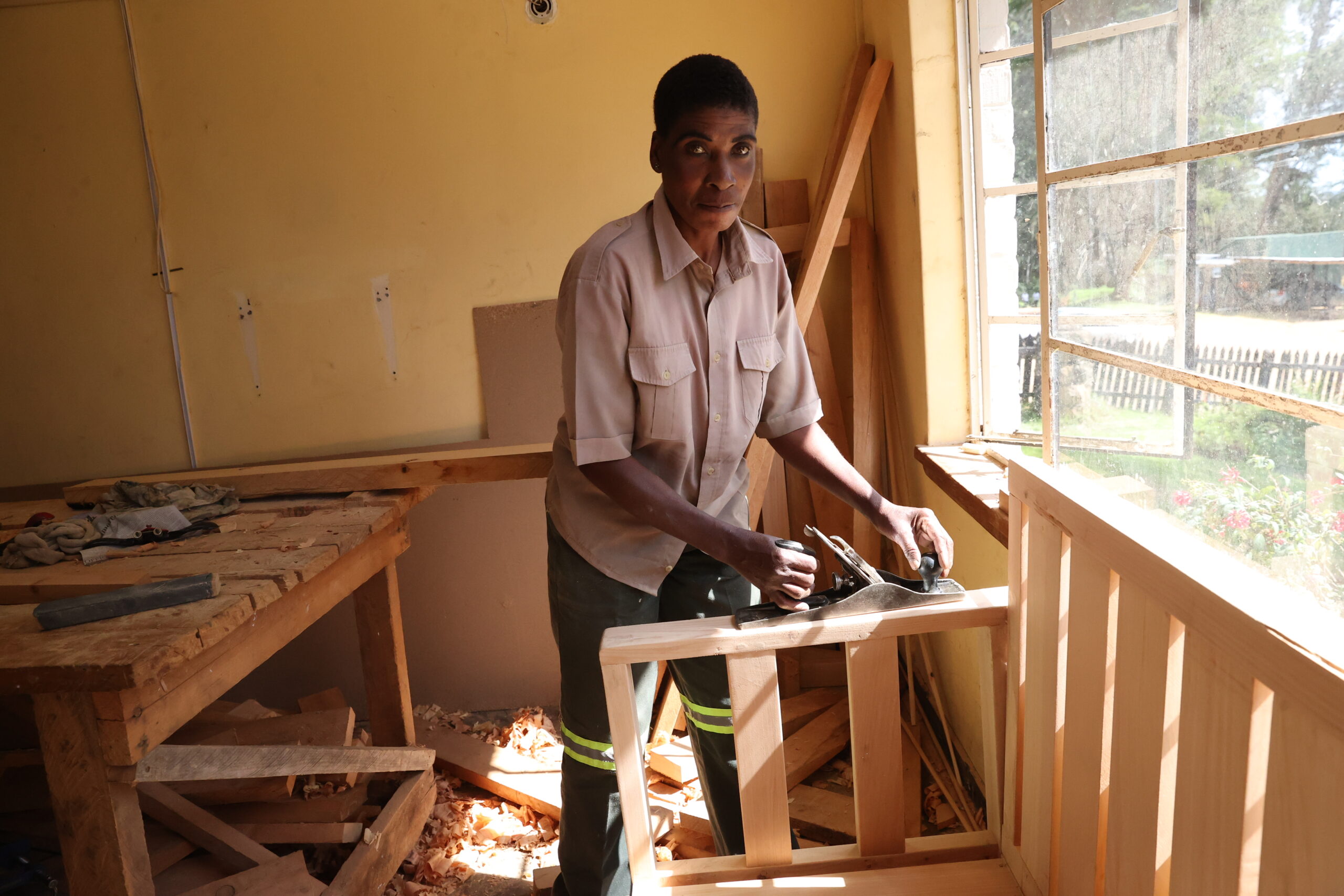
has engaged carpenters from the local
community to make furniture for the
Rhodes Nyanga Hotel
Clearly, the spirit of Kwame Nkrumah had imbued this Ghanaian and I knew I had to stop him from continuing with the lecture. I reminded him that he was directing his wrath to the wrong people as the issues he was raising could only be dealt with at national level. And so our focus turned immediately to the renovations currently taking place at Rhodes Hotel.
A visibly relieved Magusha, who used to be the business enterprise manager for ZimParks Eastern Highlands, went on to describe in detail the renovations underway. According to Magusha, the renovations – which started on 15 November 2022 — were progressing smoothly.
Explained Magusha: “Rhodes Hotel is the only hotel situated in the Nyanga National Park. So, in this regard, the hotel is strategically positioned to lure even the most discerning tourist, especially those with a passion for wildlife.
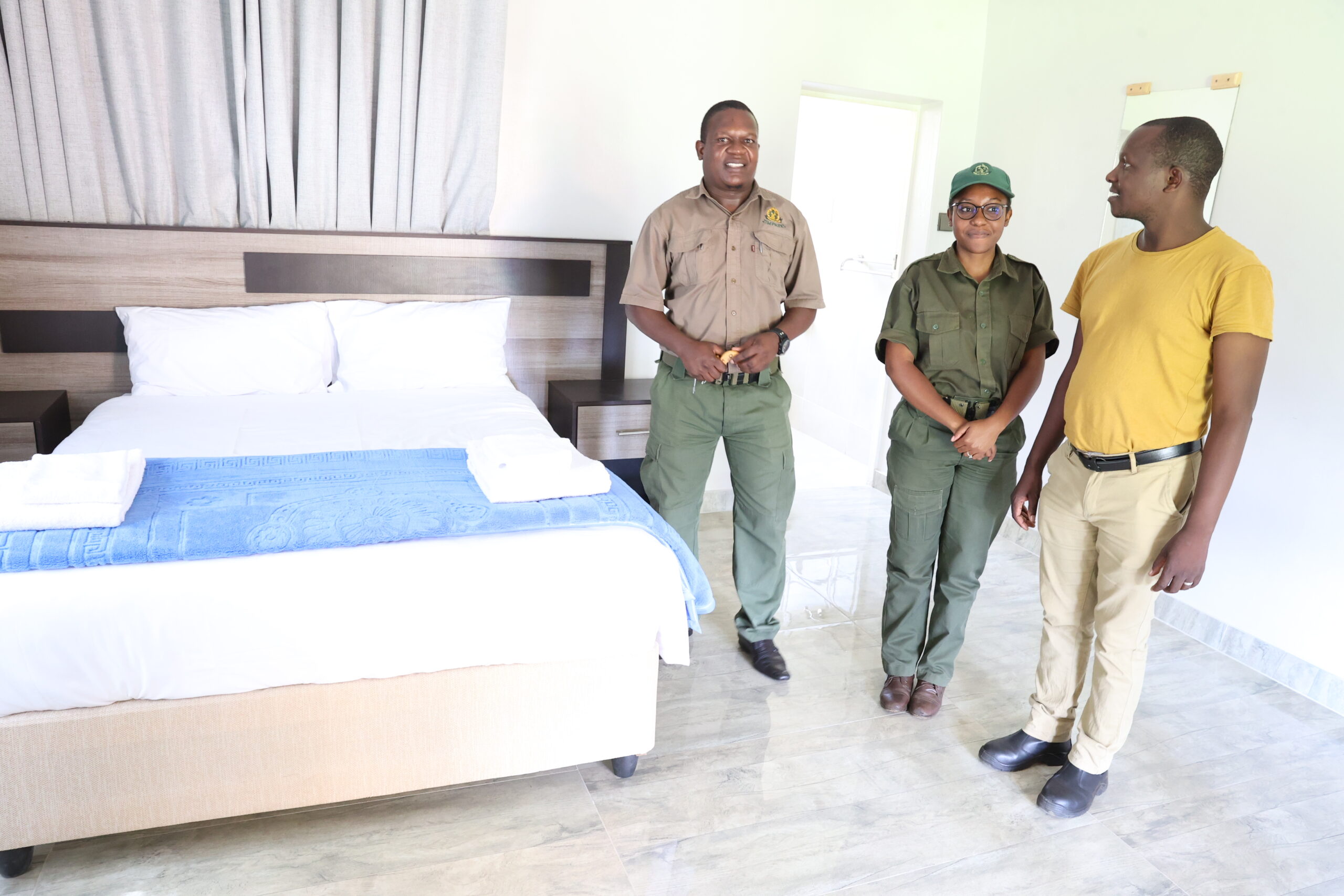
“For instance, Nyanga National Park is endowed with a number of attractions, among them the highest mountain in Zimbabwe, Nyangani Mountain; and — at 792 metres – the country’s highest waterfall, Mutarazi Falls. Some now say the park has the longest zip line in the world — the Mutarazi Falls zip line — which is around 400 metres. In addition, it has a plethora of waterfalls that include the Nyangombe Waterfalls, Nyamuziwa Waterfalls, Pungwe Waterfalls, etc.
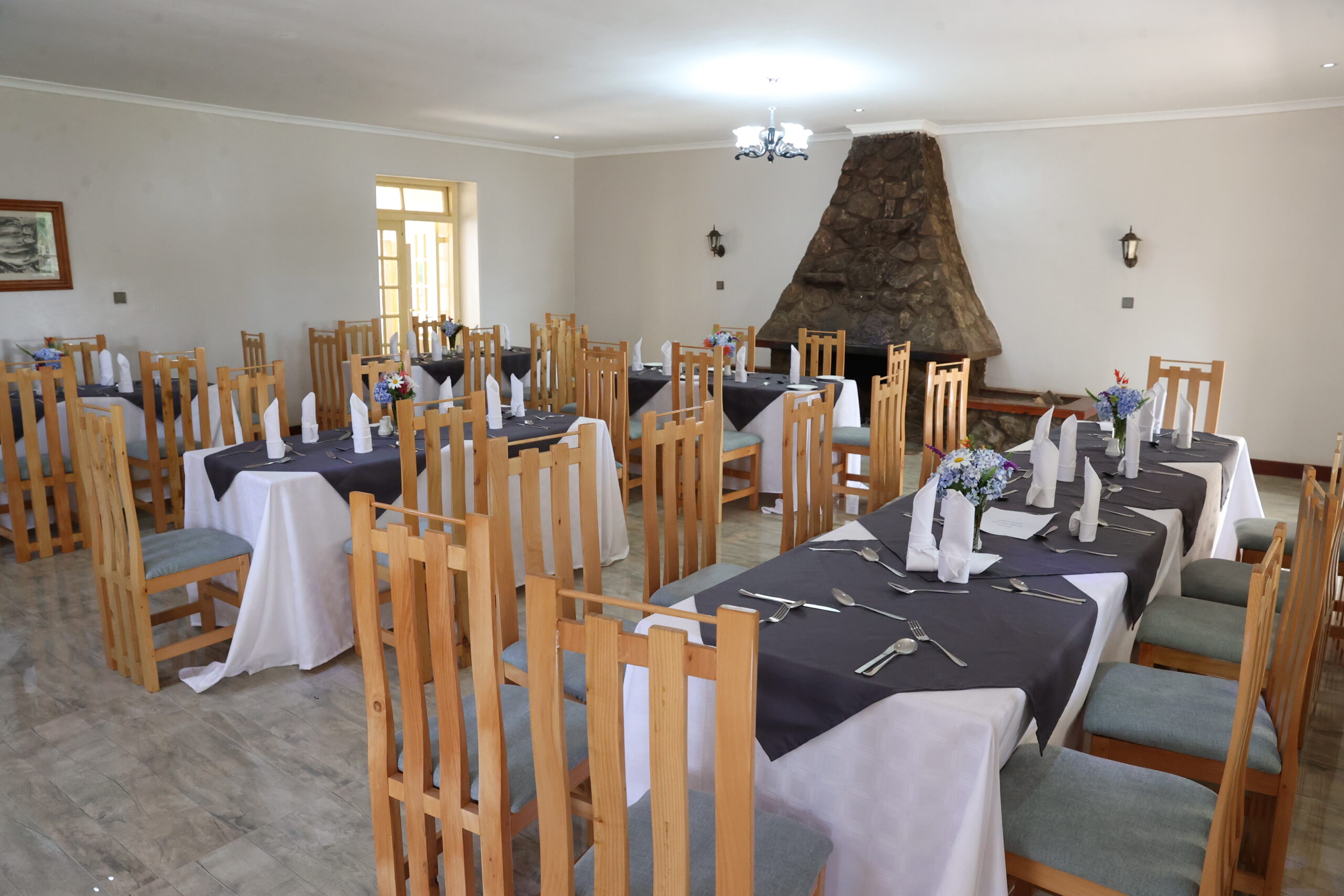
“The hotel’s room capacity is clearly not commensurate with these attractions, hence the ongoing renovations.
“Initially, Rhodes Hotel operated under a lease agreement. However, ZimParks was convinced that it could run the hotel much better than its previous owners. The infrastructure, in particular, was past its ‘sell-by date’. Mind you, Rhodes Hotel was built with farm bricks more than 100 years ago, and this has contributed to its rapid deterioration over the ensuing years.
“ZimParks is, therefore, giving the hotel a long-overdue facelift by increasing the room capacity. We started by renovating 8 executive rooms, including the Rhodes Room, which is Room No. 8. Priority was given to the roof, which was leaking badly during the rainy season.
“In renovating the hotel, we made an undertaking not to destroy its original rustic look. Thus, for example, we put in a new ceiling to replace the original one which was the worse for wear to such an extent it resembled the set of a horror movie. We laid new wooden tiles to maintain the original ambience. Although there was a temptation to replace the wooden tiles with ceramic ones, we decided to go along with our clients’ wishes who pleaded with us: ‘Please don’t modernise this hotel.’
“The same applies to the walls, which still exude their rustic look despite a new lick of paint. However, the wooden windows have given way to aluminium. The restaurant also underwent a makeover, and kudos must go to our in-house carpenters who made the tables and chairs. For the purposes of the carpentry work, we turned one of the hotel rooms into a makeshift workshop. As we speak, about 97% of the first phase of the renovations are now complete.
“The second phase will encompass renovations to about 15 rooms, i.e. Rooms No. 9-24. We hope to complete all the renovations by December 2023,” said Magusha.
And what can holidaymakers expect from the renovated Rhodes Hotel?
“Our clients should brace themselves for exciting times ahead at Rhodes Hotel. We want to give them an unforgettable holiday experience. In terms of food, we are going to dedicate different days to different dishes, including traditional ones. In addition, we are going to have traditional dancers to showcase the culture of the Manyika people,” enthused Magusha.
A stone’s throw away from the hotel is Rhodes Museum, whose curator is a relatively young man who goes by the name Marshal Nyanhanda. Despite his youthfulness, Nyanhanda is literally a moving history encyclopaedia. Even the hard-to-please Baffour was impressed.
“Some of the artefacts you see in here were taken from the hotel, which used to be Rhodes’ house. The hotel was constructed in 1896 by Mark Adam while the museum was built in 1897 by Robert Max. All the items, including the furniture, you see here were used by Rhodes during his 3-year stay in Nyanga (1897-1900).
“Apart from Rhodes’ history, we have our own history from the First Chimurenga and Second Chimurenga up to independence in 1980. In the shed outside, we have some of the farm machinery used from the 1930s to 1960s,” said Nyanhanda, who went on to give an in-depth account how and why Rhodes chose Nyanga to build his home.
Leaving Rhodes Hotel behind us, it seemed like we were shaking off the chains of colonialism once more. Brick by Brick magazine is of the opinion that as Zimbabweans we should engage in more robust debate on the merits and demerits of retaining names and symbols associated with colonialism. In the social sciences, they call it coloniality!

